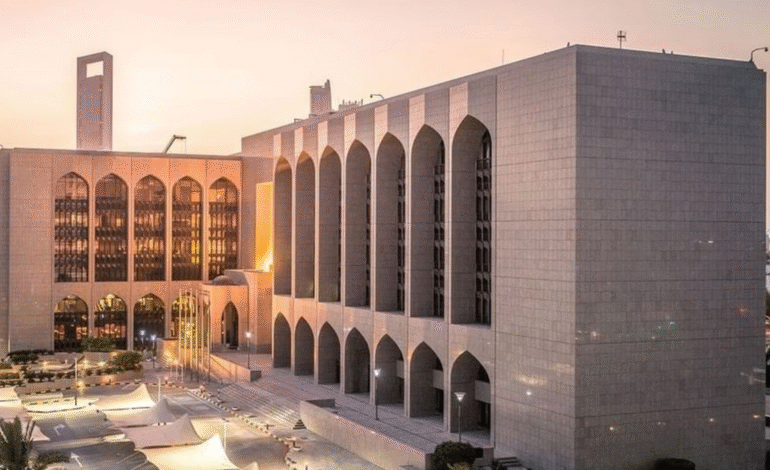UAE Central Bank Revokes Gomti Exchange Licence for AML Failures

The Central Bank of the UAE (CBUAE) has taken decisive action against Gomti Exchange, a Dubai-based exchange house, by revoking its licence and removing its name from the official register. This move, announced on July 31, 2025, underscores the UAE’s unwavering commitment to combating financial misconduct, particularly in the areas of anti-money laundering (AML) and countering the financing of terrorism (CFT). The decision follows rigorous examinations that exposed significant lapses in Gomti Exchange’s compliance with UAE’s regulatory framework. For businesses, investors, and residents in the UAE and the Middle East, this development highlights the critical importance of financial transparency and adherence to regulatory standards in maintaining the integrity of the UAE’s robust financial ecosystem.
Background: UAE’s Robust Financial Oversight
The UAE has emerged as a global financial hub, known for its stringent regulatory framework and proactive measures to safeguard its financial system. The CBUAE, as the nation’s primary financial regulator, plays a pivotal role in ensuring that all financial institutions, including exchange houses, adhere to UAE laws and international standards. Under Decretal Federal Law No. (14) of 2018, the CBUAE is empowered to oversee the operations of financial institutions, ensuring compliance with AML/CFT regulations and sanctions frameworks. This law provides the legal backbone for actions such as licence revocations, as seen in the case of Gomti Exchange.
The UAE’s efforts to combat financial crimes have been globally recognized. In recent years, the country has strengthened its AML/CFT framework, extraditing hundreds of criminals and imposing hefty fines to deter money laundering and terrorist financing. For instance, in Q1 2025 alone, the UAE issued fines exceeding AED 115 million ($31.3 million) to combat financial misconduct. The revocation of Gomti Exchange’s licence is a continuation of these efforts, signaling the CBUAE’s zero-tolerance policy toward regulatory violations.
Why Was Gomti Exchange Targeted?
The CBUAE’s decision to revoke Gomti Exchange’s licence was based on findings from thorough examinations conducted by the regulator. These inspections revealed significant failures in the exchange house’s compliance with the UAE’s Anti-Money Laundering and Combating the Financing of Terrorism and Illegal Organisations and Sanctions framework. Specifically, Gomti Exchange was found to have critical lapses in its internal processes, which undermined the transparency and integrity required to operate within the UAE’s financial sector.
According to the CBUAE, these violations were not minor oversights but serious breaches that posed risks to the broader financial ecosystem. Exchange houses, which facilitate currency exchange and remittances, are critical components of the UAE’s economy, handling billions of dirhams annually. Any failure to comply with AML/CFT regulations can expose the system to risks such as money laundering, terrorist financing, and violations of international sanctions. By taking swift action, the CBUAE aims to protect the UAE’s reputation as a secure and transparent financial hub.
Legal Basis for the Revocation
The revocation of Gomti Exchange’s licence was executed under Article (137) of Decretal Federal Law No. (14) of 2018, which governs the operations of the CBUAE and financial institutions in the UAE. This article grants the CBUAE the authority to impose administrative sanctions, including licence cancellations, on entities that fail to meet regulatory standards. The decision to strike Gomti Exchange’s name from the register further ensures that the exchange house can no longer operate legally in the UAE, sending a strong message to other financial institutions about the consequences of non-compliance.
This action aligns with the CBUAE’s broader mandate to uphold transparency, integrity, and compliance within the exchange house industry. The regulator emphasized that all exchange houses, their owners, and employees must adhere to UAE laws, CBUAE regulations, and international standards to maintain the country’s position as a trusted financial hub.
The Broader Context: UAE’s Crackdown on Financial Misconduct
The revocation of Gomti Exchange’s licence is not an isolated incident but part of a broader crackdown on financial misconduct in the UAE. Over the past few years, the CBUAE has taken similar actions against other exchange houses for similar violations. For example, in February 2023, the CBUAE revoked the licences of Dollar Exchange and Al Rasheed Exchange for serious AML violations and failure to maintain required capital levels. In August 2023, Dirham Exchange faced a similar fate, alongside the deregistration of a hawala provider, RMB Commercial Brokers, for non-compliance with AML/CFT regulations.
These actions reflect the UAE’s proactive stance in addressing economic crimes. In June 2025, the UAE announced plans to establish federal prosecution offices dedicated to tackling money laundering and other financial crimes, further strengthening its regulatory framework. These offices focus on corporate crimes, financial market violations, and customs evasion, demonstrating the UAE’s commitment to aligning with global standards set by organizations like the Financial Action Task Force (FATF).
The UAE’s efforts extend beyond enforcement. In June 2025, the Executive Office of Anti-Money Laundering and Countering the Financing of Terrorism collaborated with the World Bank to conduct workshops aimed at identifying and mitigating money laundering risks. These initiatives highlight the UAE’s holistic approach to building a resilient financial ecosystem that prioritizes transparency and security.
Implications for the Exchange House Industry
The revocation of Gomti Exchange’s licence serves as a wake-up call for the exchange house industry in the UAE. Exchange houses play a vital role in facilitating remittances, which are a cornerstone of the UAE’s economy, particularly for its large expatriate population. However, their operations must align with the CBUAE’s stringent regulatory standards to prevent misuse for illicit activities.
The CBUAE’s actions underscore the importance of robust compliance frameworks within exchange houses. This includes implementing effective Know Your Customer (KYC) procedures, monitoring transactions for suspicious activity, and ensuring adherence to international sanctions. Failure to comply not only risks licence revocation but also damages the reputation of the exchange house and its stakeholders.
For consumers, this development emphasizes the need to choose reputable exchange houses that prioritize compliance and transparency. The CBUAE’s actions protect consumers by ensuring that only trustworthy institutions operate within the UAE’s financial system.
What This Means for Businesses and Investors
For businesses and investors operating in the UAE and the Middle East, the Gomti Exchange case highlights the importance of regulatory compliance in the financial sector. The UAE’s strict enforcement of AML/CFT regulations ensures a level playing field and protects the integrity of the financial ecosystem. Companies must invest in robust compliance programs to avoid penalties and maintain their licences.
Investors should also take note of the UAE’s commitment to financial transparency. The country’s proactive measures enhance its appeal as a safe destination for investment, particularly in financial services and fintech. However, they also serve as a reminder that regulatory scrutiny is high, and non-compliance can lead to severe consequences.
The UAE’s Global Standing
The UAE’s actions against Gomti Exchange reinforce its position as a leader in combating financial crimes in the Middle East. By aligning with international standards and collaborating with global organizations like the World Bank and FATF, the UAE continues to build a reputation as a secure and reliable financial hub. This is particularly important as the country attracts increasing foreign investment and seeks to maintain its status as a global economic powerhouse.
The CBUAE’s commitment to transparency and integrity not only protects the UAE’s financial system but also enhances consumer confidence. Residents and businesses can trust that the UAE’s regulatory environment is designed to prevent money laundering, terrorist financing, and other illicit activities, creating a stable and secure economic landscape.








1 Comment
[…] August 6, 2025, the Central Bank of the UAE (CBUAE) delivered a striking blow to a finance company with a hefty Dh600,000 fine (approximately USD […]
Comments are closed.